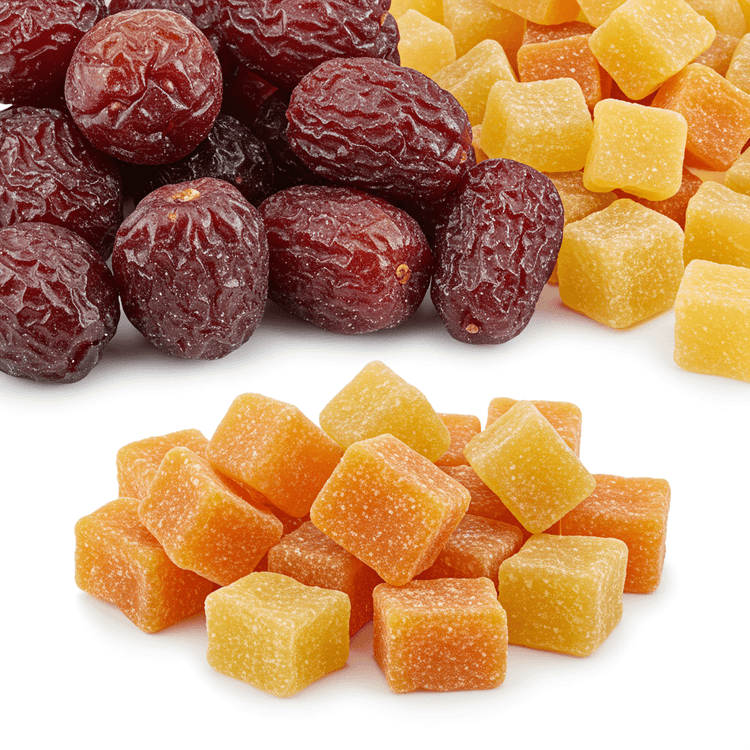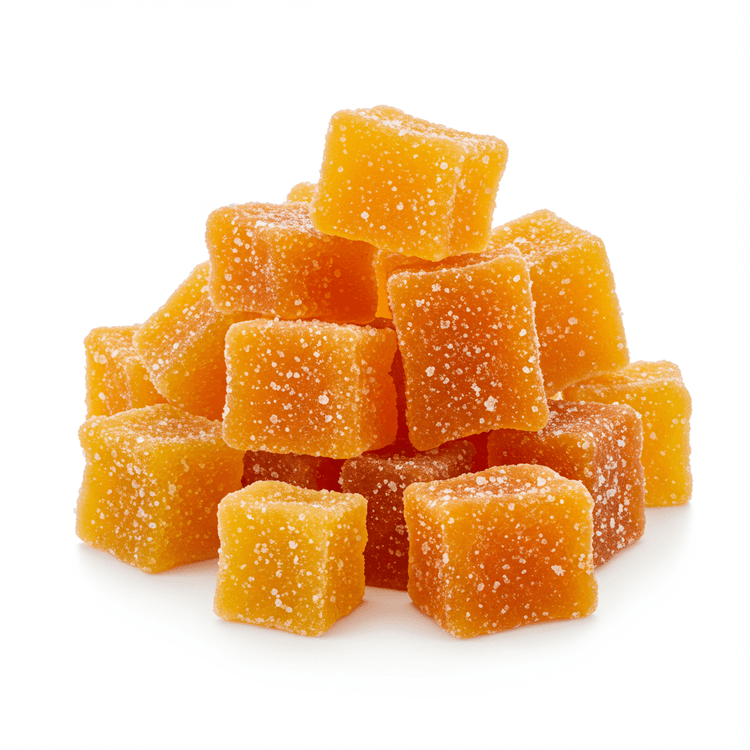
Dry Fruits
Dry fruits are fruits from which the original water content has been removed, either naturally, through sun drying, or through the use of specialized dryers or dehydrators. This process concentrates the fruits' natural sugars, resulting in a delightfully sweet taste and a chewy or sometimes crispy texture, depending on the specific fruit and drying method. Common examples include raisins (dried grapes), dates, figs, apricots, prunes (dried plums), and dried berries such as cranberries. They offer a concentrated source of energy, fiber, and essential nutrients, making them a popular and convenient snack. Their appearance varies widely, from the wrinkled and dark skin of raisins to the glossy and plump appearance of dried apricots. Dry fruits are frequently used in baking, cooking, and as a healthy snack option.
Common Uses
- Adding to baked goods such as muffins, cakes, cookies, and breads for sweetness, flavor, and textural interest; providing a chewy contrast to the soft batter.- Incorporating into trail mixes and snack blends as a healthy and convenient source of energy, fiber, and essential vitamins.- Using as a topping for yogurt, oatmeal, or cereal to add sweetness, texture, and nutritional value to breakfast dishes.- Stuffing dates or other dried fruits with nuts or cheese for an elegant and flavorful appetizer or dessert.- Chopping and adding to savory dishes like rice pilafs, couscous, or tagines to impart sweetness and depth of flavor.- Simmering with sauces and chutneys to enhance the flavor and texture, creating a richer and more complex taste profile.
Health Benefits
- Rich in fiber, aiding digestion and promoting gut health.
- Excellent source of antioxidants, protecting cells from damage and reducing the risk of chronic diseases.
- Provides essential vitamins and minerals like potassium and iron, supporting overall health.
- Natural source of energy, ideal for a quick and healthy snack.
- May help in weight management due to their fiber content and satisfying sweetness.
Substitutes
Chefadora AI is here.
Experience smarter, stress-free cooking.
Storage Tips
Store dry fruits in an airtight container in a cool, dark, and dry place to maintain their quality. At room temperature, they can last for several months. For longer storage (6-12 months), refrigeration is recommended. Freezing dry fruits is also an option for extended shelf life, but it may slightly alter their texture. Ensure the container is well-sealed to prevent moisture absorption and maintain flavor.
Marnirni-apinthi Building, Lot Fourteen,
North Terrace, Adelaide, South Australia, 5000
Australia




